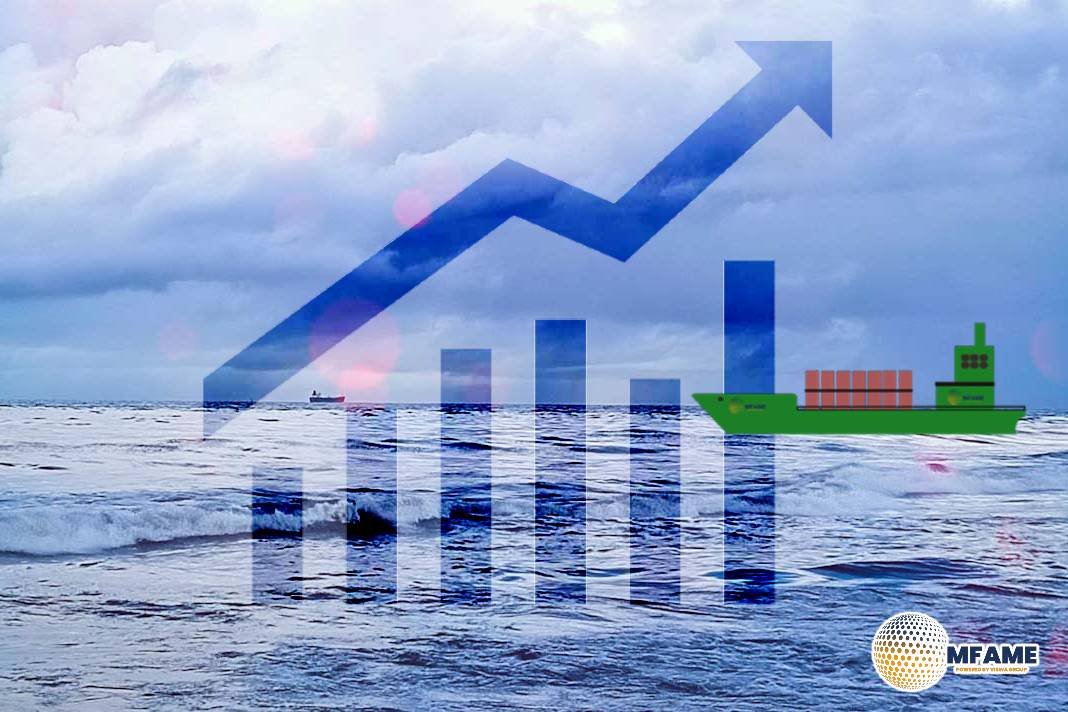
- European exporters to Asia face a double-whammy of transit disruption surcharges and significant rate increases.
- Carriers invoke force majeure clauses, backdating surcharges for containers shipped in November.
- New FAK rates of up to $1,500 per 40ft were announced for European exports, causing disruption and anger among industry players.
European exporters to Asia are being hit with a double-whammy of transit disruption surcharges for containers already shipped, and huge rate increases for new bookings. Moreover, ocean carriers are invoicing customers extra fees for shipments as far back as November, when most vessels were still being routed via the Suez Canal, reports The Loadstar.
A raft of contingency surcharges
According to Rob Powell, MD of UK-based recycling export specialist Miro Logistics, invoking force majeure clauses in their bills of lading has allowed carriers to backdate surcharges; Maersk, for instance, billing an extra $400 per 40ft for a shipment that left the UK on 18 November.
Meanwhile, before Christmas carriers issued advisories of a raft of contingency surcharges for European exports, effective immediately, as well as new FAK (freight all kinds) rates of up to $1,500 per 40ft from 1 January.
A UK-based NVOCC told The Loadstar his carrier had advised him that the new rates were “not negotiable”, and had warned they might increase further.
“It has given us and our clients no time to adjust and, on top of that, the line also said we had to book now otherwise they could not guarantee to have equipment available,” he said.
Mr Powell agreed, saying the timescale of the increases “allowed no time for changes in logistics commitment” and added: “This is a particularly busy time for waste paper (recyclables account for around 40% of loaded volume from the UK), and the flow of material does not stop. This stunt has hit the industry hard.
“While no one in our industry disputes that costs will need to increase, and that additionally, freight rates were too low, how these costs have been implemented, and the timing [of the increases], is the main cause of anger.”
Nevertheless, Mr. Powell said that some smaller carriers had been “more considerate in their approach”, implementing new charges from 15 January, or 1 February.
And pulling no punches, Mr Powell accused the top carriers of “using sledgehammer tactics” to patch up losses.
Meanwhile, on the transpacific, US maritime regulator the Federal Maritime Commission has agreed to requests from several Asia-US carriers to exempt them from the required 30-day notice before they are allowed to impose diversion surcharges, due to the “extraordinary circumstances” of the Red Sea crisis.
Given the abuse of detention and demurrage charges by carriers during the COVID-19 supply chain crisis that led to the Ocean Shipping Reform Act of 2022, Mr Friedmann urged the FMC to “guard against” profiteering by shipping lines.
Did you subscribe to our daily Newsletter?
It’s Free! Click here to Subscribe
Source: The Loadstar


















certainly like your website but you need to take a look at the spelling on quite a few of your posts Many of them are rife with spelling problems and I find it very troublesome to inform the reality nevertheless I will definitely come back again
What i dont understood is in reality how youre now not really a lot more smartlyfavored than you might be now Youre very intelligent You understand therefore significantly in terms of this topic produced me personally believe it from a lot of numerous angles Its like women and men are not interested except it is one thing to accomplish with Woman gaga Your own stuffs outstanding Always care for it up